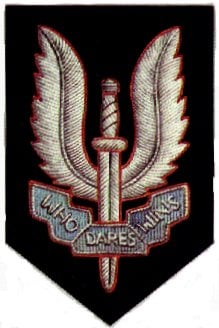“The Terrorists R US”: Anniversary of a Thwarted False Flag in Basra

by Louis Shawcross
Nine years ago this week, the British SAS attempted to plant a car bomb in Basra for the purpose of indiscriminate murder and to stoke sectarian hatred in Iraq.
This was not an isolated case. For example, eyewitness accounts from many Iraqi drivers all describe a similar scenario of having their vehicle confiscated by the American Army and then once back in their possession finding the vehicle packed with explosives and themselves being used unwittingly in a terrorist attack.
The death squads attached to the Minister of the Interior in Iraq which murdered thousands of Iraqis were trained and controlled by the US military under US Colonel James Steele, veteran of the “dirty wars” in Central America during the 1980s.
The UK and the US continue their support for anti-Assad terrorists and now the US has started yet another bombing campaign in Iraq. Yet to watch the mainstream news one would think the US is following some noble cause.
UK denies storming Iraqi jail to free soldiers
Reuter, 20 September 2005
British forces have freed two undercover soldiers from jail in Basra after a day of rioting in the Iraqi city that was sparked when the soldiers fired on a police patrol.
An Iraqi Interior Ministry official says British forces stormed the jail using six tanks and that dozens of Iraqi prisoners escaped during the raid.
But Britain’s Ministry of Defence says the release of the two soldiers had been negotiated and it did not believe the prison had been stormed.
“We’ve heard nothing to suggest we stormed the prison,” a ministry spokesman said.
“We understand there were negotiations.”
Lisa Glover, spokeswoman for the British embassy in Baghdad, says three people have been wounded in the operation to free the soldiers.
She did not give further details of how the soldiers were freed.
The events in the mainly Shiite city are likely to worsen relations between British forces responsible for security in southern Iraq and the local population.
Police and local officials say the two undercover soldiers were arrested after opening fire on Iraqi police who approached them.
They say the men were wearing traditional Arab headscarves and sitting in an unmarked car.
“They were driving a civilian car and were dressed in civilian clothes when shooting took place between them and Iraqi patrols,” an official in Basra said.
Mohammed al-Abadi, an official in the Basra governorate, says the two men looked suspicious to police.
“A policeman approached them and then one of these guys fired at him. Then the police managed to capture them,” Mr Abadi said.
“They refused to say what their mission was. They said they were British soldiers and (suggested) to ask their commander about their mission.”
Tank ablaze
Furious crowds pelted British armoured vehicles with rocks and petrol bombs after the shooting incident.
A British soldier was engulfed in flames as he scrambled out of a burning tank during the rioting.
He was pelted with stones by the crowd.
The tank tried to reverse away from trouble after it was attacked by Iraqis flinging petrol bombs, burning furniture and tyres.
Iraqis had driven through the streets with loudhailers demanding that the undercover Britons remain in jail.
Basra, capital of the Shiite south, has been relatively stable compared with central Iraq, where Sunni Arab insurgents have killed thousands of Iraqi and US troops, officials and civilians with suicide attacks, roadside bombs and shootings.
But relations remain tense between the British military and some local groups.
British Defence Secretary John Reid confirms in a statement that the two undercover soldiers are back with British forces, but sheds no light on their mission or how they were released.
“The situation in Basra is currently calmer after a day of disturbances,” he said.
“At this stage it is not possible to be certain why these disturbances began.”
The main ally of the United States, Britain said on Sunday it would if necessary increase the number of troops in Iraq, where it has about 8,500 soldiers.
Copyright Reuters 2005

